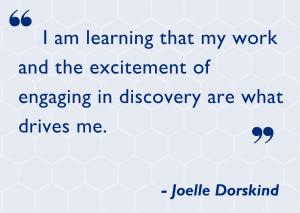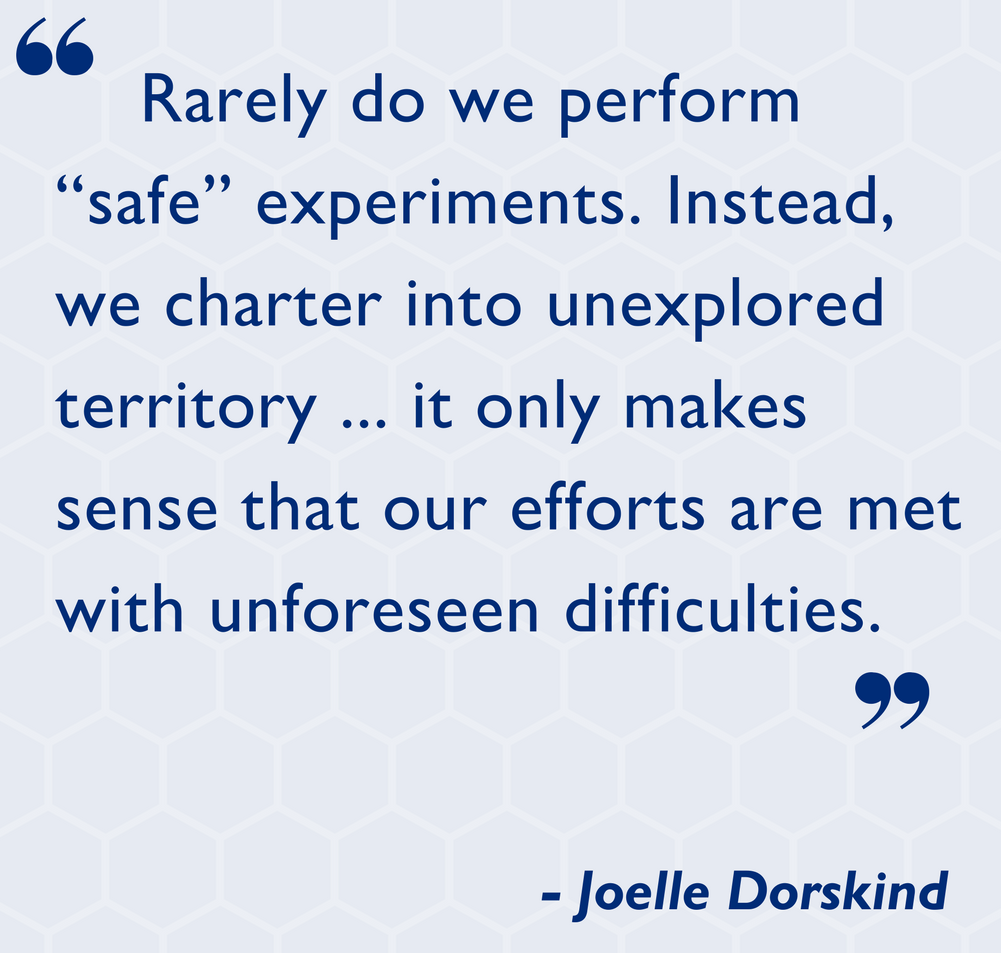Have you ever had one of those days when everything and anything goes wrong? Your car won’t start; your roommate used the last of the milk; there is no hot water in your building and, of course, it is pouring outside. Well, in the life of a graduate student, those types of days can start to feel like every day — your experiment didn’t work; your labmate used the last of the reagent you needed, and the microscope is being serviced. This is not to say that entering the lab always feels like opening Pandora’s box; however, graduate students begin most work days acutely aware of the high probability that everything will go wrong.
With a high likelihood of disappointment perpetually looming over our work, how is it that we, as students, are able to stay motivated for at least five years to complete a Ph.D.? I’ve watched postdoctoral fellows in my lab leave their families overseas to complete papers and projects, and friends leave their homes and friends to follow their labs to different institutions. What is the driving force and where does this motivation come from, when we already know the probability of success is so low?
Of course, I can’t speak for everyone, but as a student entering my third year of graduate school, about halfway to finishing my Ph.D., I am learning that my work and the excitement of engaging in discovery are what drive me. Every day there is the potential for discovery. With each experiment that fails, and with each piece of equipment that is unavailable or broken, I learn new ways to discover. My job is to be creative and innovative — discovery and exploration of new avenues in my field are expected. For me, that provides the motivation to move forward even when experiment after experiment falters.
 Why is science so fragile? Why haven’t we been able to prevent so many of the failures that we experience each day? Scientists are risk takers. Each experiment comes with the bravery that one feels when climbing a mountain or bungee jumping out of an airplane, and the practice of scientific research often requires us to take a leap of faith and pursue our hunches. We believe in the work of our predecessors and colleagues and use their findings to guide our own.
Why is science so fragile? Why haven’t we been able to prevent so many of the failures that we experience each day? Scientists are risk takers. Each experiment comes with the bravery that one feels when climbing a mountain or bungee jumping out of an airplane, and the practice of scientific research often requires us to take a leap of faith and pursue our hunches. We believe in the work of our predecessors and colleagues and use their findings to guide our own.
Rarely do we perform “safe” experiments. Instead, we charter into unexplored territory, and therefore it only makes sense that our efforts are met with unforeseen difficulties. The possibility of novelty and unearthing advances in our fields drives us into the lab, stations us at our benches and perpetuates our desire and willingness to try again. Similar to climbing a mountain or bungee jumping from an airplane, it is scary and unsettling at first, but we know that when we finally make it, the struggle and pain will have been well worth it.
